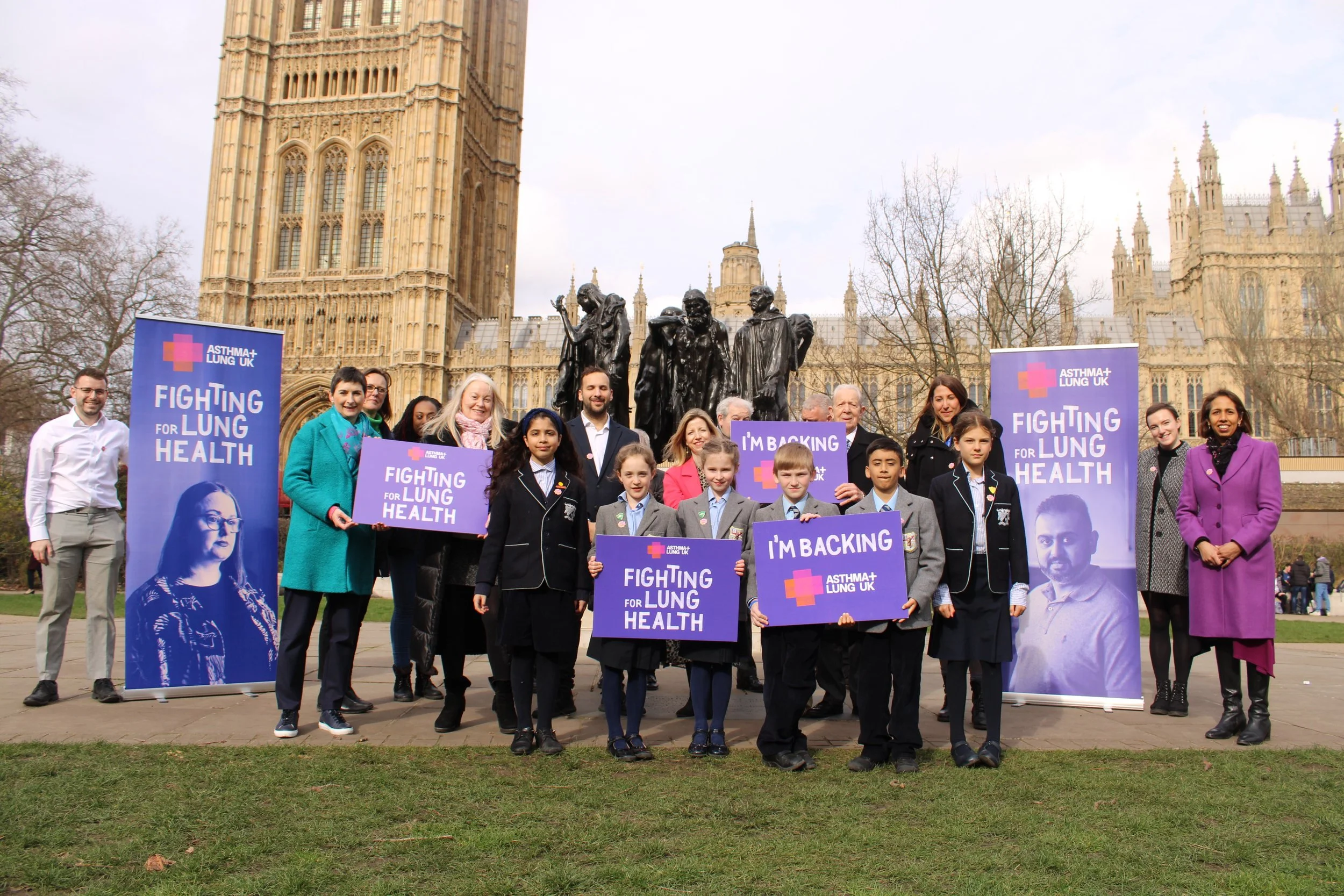Uniting the respiratory community behind a shared mission to tackle disease burden and lack of capacity in the UK
Krisnah Poinasamy, Head of Research and Innovation Advocacy at Asthma and Lung UK, shares two joint A+LUK publications and discusses their potential implications for respiratory research and innovation.
We’re delighted to share two recent publications co-written by our Director of Research and Innovation, Dr Samantha Walker.
Firstly, Respiratory research in the UK: investing for the next 10 years in Thorax, one of the premier UK journals on respiratory disease. Jointly written with Professor Ian Hall and Professor Sir Stephen Holgate, the paper highlights the ongoing burden of respiratory disease in the UK, issues with our capacity to deliver research and innovation, and sets out some of the respiratory community’s ambitions to deliver on the Government’s Life Science Vision.
Secondly, together with AstraZeneca we have published a blog that explores how longitudinal patient cohorts could transform respiratory research. Written by Professor Maria Belvisi and Dr Samantha Walker, the blog sets out how recruitment of a new respiratory cohort could accelerate our understanding of complex respiratory conditions.
Both publications emphasise the opportunity for the respiratory community – academics, industry, government, and charities – to drive cutting-edge research, enable innovators to develop life-saving tech, and ensure that the UK is the best place in the world to do respiratory research and innovation, vastly improving the lives of those with respiratory disease and attracting investment in UK life sciences.
Disease Burden and R&I Capacity in the UK
Our article with Professors Hall and Holgate starkly sets out extent of respiratory disease burden in the UK and our limited capacity to overcome this burden. 1 in 5 people - that’s roughly 12.7 million – have had a history of asthma, COPD or another respiratory illness. The extent of morbidity and mortality caused by these diseases is also stark, with respiratory disease accounting for 20% of all deaths in the UK and 8% of hospital admissions in 2011-2012.
So, the burden is considerable and respiratory research and innovation could be integral to tackling it. However, with the level of investment from government and industry low compared to disease burden and a declining number of academics pursuing a career in respiratory research, there is concern about the UK’s capacity to ensure the best research and innovation. Despite these problems, we are incredibly optimistic about the potential for the UK respiratory community to come together and radically overhaul the way we deliver respiratory research for the better.
Uniting the respiratory community
Three months ago, we launched our ambitious strategy and one of our core aims is to triple public investment in respiratory research and innovation to £150 million a year.
To achieve this, we need to see a unified response to the burden of lung disease and the Life Science Vision (LSV) has been a challenge to the respiratory community to provide this vital collaboration. The roundtable meeting we held with senior academics in January served as a platform for cooperation amongst the community and we have seen some exciting ideas already being taking forward.
One of the big unmet needs is that we lack a really well-characterised cohort of patients in whom we could study the onset of lung diseases much earlier than is currently possible. This may be possible as part of the Our Future Health programme which we are currently exploring. As set out in our joint blog with AstraZeneca, this would radically improve our understanding of how respiratory diseases progress over time and help identify important targets to develop new treatments. We have set out more detail on this idea, along with others, in our draft concept document.
It is both a very exciting and challenging time for the respiratory community. At Asthma and Lung UK we are holding a roundtable this week which brings together industry partners and Our Future Health to explore this pre-competitive opportunity in more detail. We are also expecting an update from the Office For Life Sciences on the Life Science Vision. We hope the update will set out how we can build on the unity of the respiratory community to transform respiratory science and ultimately improve lives.
We empower people with lung conditions to make changes that can be transformative.
Please donate now to help make sure people with lung conditions can live well this year.








Beki is a PhD student from the West Midlands. She has several health conditions including severe asthma and Ehlers-Danlos syndrome (EDS). EDS is a rare inherited condition that affects connective tissue. Last May, Beki set herself a fundraising challenge to complete 180,000 steps to raise money to mark World Asthma Day and EDS Awareness Month.